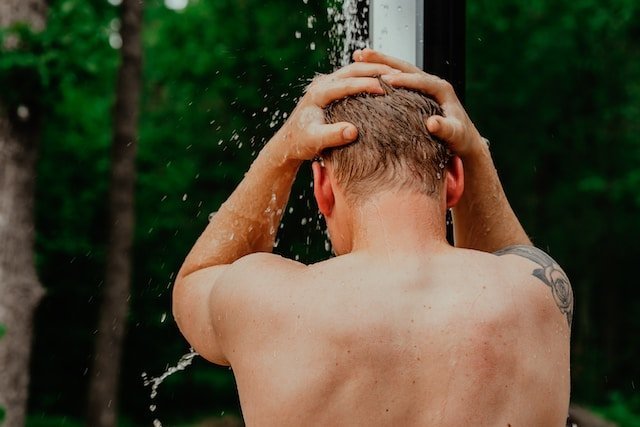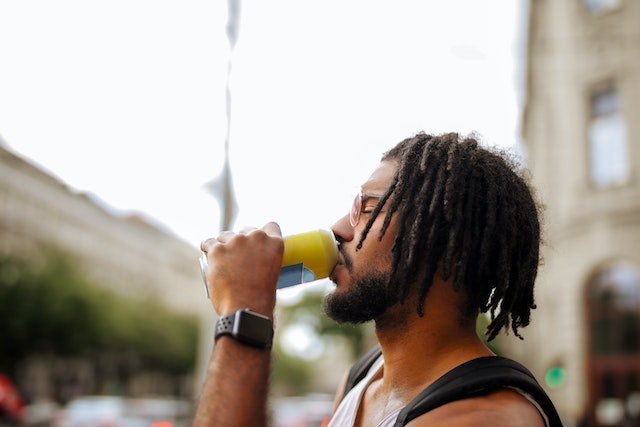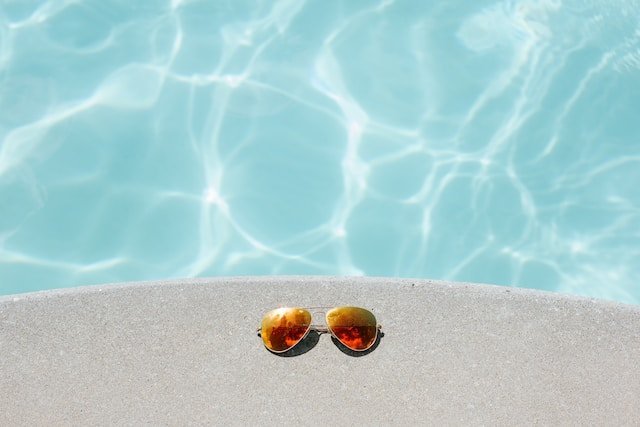Heat exhaustion is a serious condition that occurs when your body overheats due to prolonged exposure to high temperatures and inadequate fluid intake. If left untreated, it can progress to heatstroke, which is a life-threatening emergency. Here are steps to handle heat exhaustion:
- Recognize the Symptoms:
- Heavy sweating
- Weakness or fatigue
- Dizziness or lightheadedness
- Nausea or vomiting
- Rapid heartbeat
- Cool, moist, pale skin
- Muscle cramps
- Move to a Cooler Place:
- Get out of the heat immediately and find a cooler, shaded area.
- Hydrate:
- Drink fluids to rehydrate your body. Water is the best choice. Avoid alcohol and caffeine, as they can contribute to dehydration.
- Rest:
- Lie down and elevate your legs. This can help improve blood flow to your heart.
- Cool the Body:
- Use a fan or sit in front of air conditioning if available.
- Apply cool, damp cloths to your skin or take a cool shower or bath.
- Loosen Clothing:
- Remove tight or unnecessary clothing to help your body cool down.
- Avoid Exertion:
- Rest and avoid physical activity until you recover fully.
- Monitor Symptoms:
- Keep an eye on your symptoms. If they worsen or don’t improve within 30 minutes, seek medical attention immediately.
- Rehydrate Properly:
- Sip on oral rehydration solutions, sports drinks, or water with a pinch of salt and sugar to help replenish lost electrolytes.
- Seek Medical Attention:
- If the person affected by heat exhaustion doesn’t improve after taking these steps, it’s important to seek professional medical help immediately.
Preventing heat exhaustion is essential. Here are some preventive measures:

- Stay hydrated by drinking plenty of water, especially in hot weather or when engaging in physical activities.
- Avoid excessive sun exposure, and if you need to be outside, wear lightweight, loose-fitting clothing, a wide-brimmed hat, and sunscreen.
- Take frequent breaks in the shade or a cool environment if you’re working or exercising in the heat.
- Be cautious with alcohol and caffeine, as they can dehydrate your body.
- Acclimatize to the heat if you’re not used to it by gradually increasing your exposure over several days.
- Keep an eye on at-risk individuals, such as the elderly, children, and those with chronic medical conditions, as they are more vulnerable to heat-related illnesses.
Remember that heat exhaustion is a serious condition that should not be taken lightly. If you or someone you know shows signs of heat exhaustion, it’s crucial to take prompt action to prevent it from progressing to heatstroke, which can be life-threatening.
How to Handle Heat Exhaustion in terms of Diet
A well-balanced diet plays a crucial role in helping your body cope with high temperatures and reduce the risk of heat exhaustion. Here are some diet tips to help you avoid heat exhaustion:
- Stay Hydrated:
- Dehydration is a significant risk factor for heat exhaustion. Aim to consume at least 8-10 glasses (about 2-2.5 liters) of water daily, and more when it’s hot or when you’re physically active.
- Eat Water-Rich Foods:
- Include foods with high water content in your diet, such as fruits (e.g., watermelon, strawberries, oranges, and cucumbers) and vegetables (e.g., lettuce, spinach, and celery). These foods can help keep you hydrated.
- Consume Electrolytes:
- In addition to water, replenish electrolytes like sodium, potassium, and magnesium lost through sweating. You can get these from foods like bananas, oranges, potatoes, yogurt, and sports drinks. However, avoid excessive consumption of sports drinks, as they can be high in sugar.
- Balance Your Salt Intake:
- Sodium is an essential electrolyte for maintaining fluid balance. While it’s crucial to replace lost sodium through sweating, be mindful not to overconsume salt, as excessive salt intake can lead to dehydration. Opt for foods with a balanced sodium content.
- Eat Small, Frequent Meals:
- Large meals can increase your body’s metabolic heat production. Instead, eat smaller, more frequent meals to avoid overworking your body’s cooling mechanisms.
Did you know that diet can help you handle heat exhaustion? Find out more below:
- Choose Light and Nutrient-Dense Foods:
- Opt for light and easily digestible foods that won’t weigh you down in hot weather. Foods like salads, lean proteins (chicken, fish), whole grains, and legumes can provide essential nutrients without causing excessive heat production during digestion.
- Limit Alcohol and Caffeine:
- Alcohol and caffeinated beverages can contribute to dehydration. If you consume them, do so in moderation and offset them with extra water intake.
- Avoid Spicy and Heavy Foods:
- Spicy and heavy, high-fat foods can increase your body’s metabolic heat production and make you feel hotter. Opt for milder, well-balanced meals.
- Include Cooling Herbs and Spices:
- Some herbs and spices, such as mint, basil, and cilantro, can help your body cool down naturally.
- Monitor Your Fluid Balance:
- Pay attention to your body’s cues for thirst. Dark yellow urine can be a sign of dehydration, so aim for light yellow or pale straw-colored urine as an indicator that you’re well-hydrated.
Remember that everyone’s dietary needs may vary, so it’s important to adapt these tips to your individual preferences and requirements. Staying well-hydrated and consuming a balanced diet can help your body better tolerate hot weather and reduce the risk of heat-related illnesses like heat exhaustion.

Ways to Avoid Heat Exhaustion
To avoid heat exhaustion, it’s essential to engage in activities that help you stay cool and hydrated while minimizing the risk of overheating. Here are some activities you can do to prevent heat exhaustion:
- Seek Shade:
- Whenever possible, stay in the shade to reduce direct sun exposure and lower your body temperature.
- Plan Outdoor Activities Wisely:
- If you need to be outdoors during hot weather, try to schedule activities for early morning or late afternoon when it’s cooler.
- Wear Appropriate Clothing:
- Wearing a wide-brimmed hat and sunglasses can also provide additional sun protection.
- Use Sunscreen:
- Apply sunscreen with at least SPF 30 to protect your skin from harmful UV rays.
- Take Breaks:
- When engaging in physical activities in the heat, take regular breaks in the shade or a cool indoor environment. Resting can help your body cool down and prevent overheating.
- Avoid Strenuous Exercise:
- Limit strenuous physical activities during the hottest part of the day. If you must exercise, do it in the cooler hours of the morning or evening.
- Swim:
- Swimming is an excellent way to cool off and stay active during hot weather. Just be sure to follow safety guidelines when swimming.
- Use Cooling Accessories:
- Consider using cooling towels, fans, or personal misting devices to help lower your body temperature when outdoors.
- Eat Light and Hydrating Foods:
- Consume foods with high water content, like fruits (e.g., watermelon, cucumbers) and vegetables (e.g., lettuce, tomatoes). These can help keep you hydrated.
- Avoid Alcohol and Caffeine:
- These beverages can dehydrate your body, so it’s best to limit your intake, especially when it’s hot outside.
Other tips to avoid heat exhaustion:
- Monitor Your Body:
- Pay attention to how your body feels. If you start to feel excessively hot, dizzy, or fatigued, take immediate action to cool down and hydrate.
- Stay Informed:
- If there’s an extreme heat warning, consider postponing outdoor activities.
- Take Advantage of Air Conditioning:
- Spend time indoors with air conditioning on exceptionally hot days to avoid prolonged exposure to high temperatures.
- Acclimate Gradually:
- If you’re not used to hot weather, acclimate your body gradually by spending short periods of time outdoors in the heat and increasing exposure gradually.
Conclusion
Remember that heat exhaustion can be dangerous, so it’s crucial to prioritize your safety and well-being during hot weather. If you experience symptoms like heavy sweating, weakness, dizziness, or nausea, take immediate action to cool down and hydrate, and seek medical help if necessary.
Read more about healthy living blog post:






















